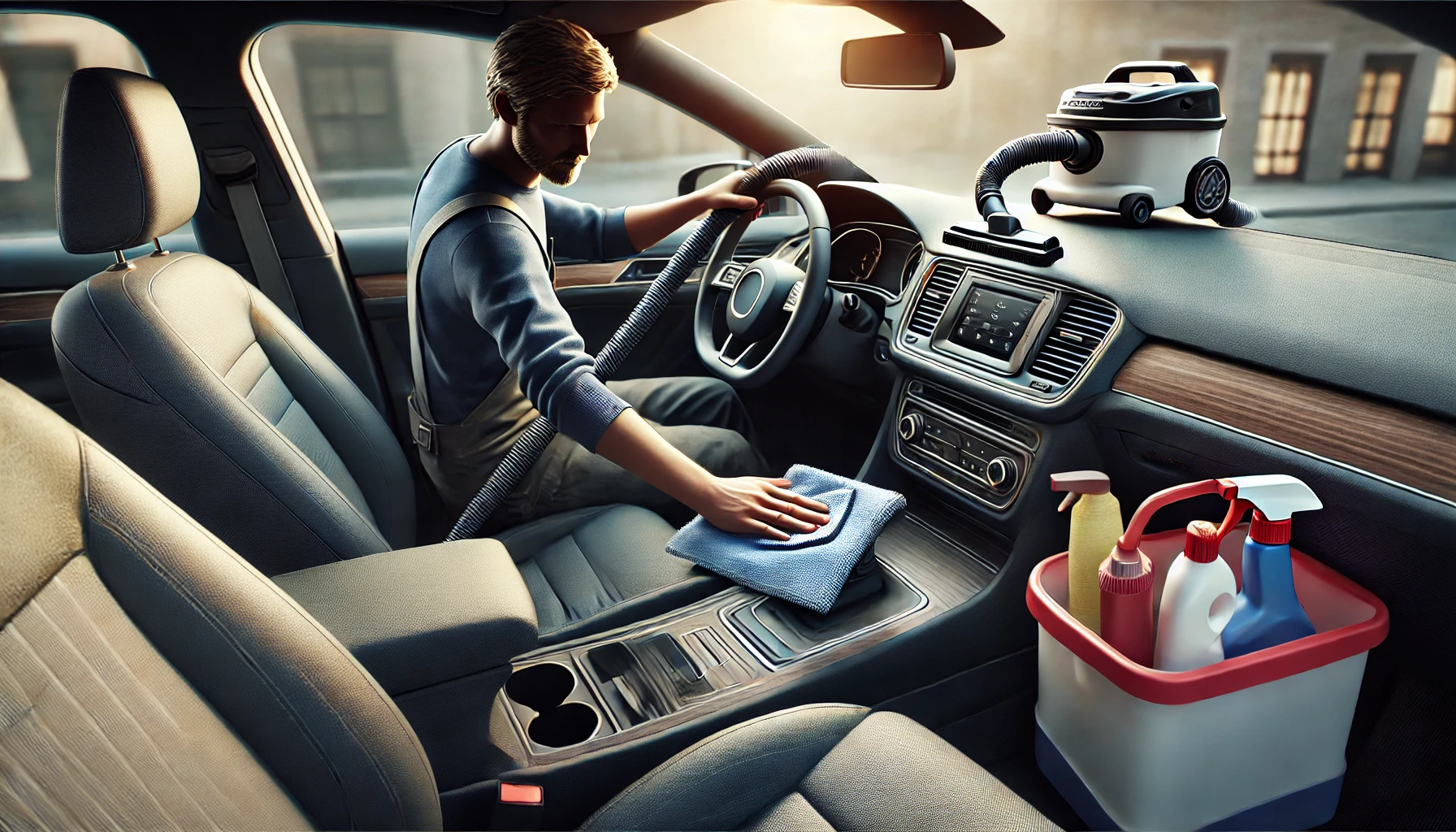Unusual car noises can be alarming, but many of them are signs of minor issues that can be fixed with proper maintenance. Understanding the source of the noise can help you troubleshoot effectively and determine whether the issue is something simple or more serious. In this guide, we’ll cover common car noises and how to diagnose and fix them.
1. Squealing or Screeching from the Brakes
If you hear a high-pitched squeal when applying the brakes, it’s usually a sign that the brake pads are worn.
Possible causes:
- Worn brake pads – Most brake pads have a built-in indicator that squeals when the pad is thin.
- Dirt or debris – Small stones or debris can get stuck in the brakes, causing noise.
What to do:
- Inspect the brake pads and replace them if they’re worn.
- Clean the brake components to remove any debris.
2. Grinding Sound When Braking
A grinding sound when braking indicates that the brake pads have worn down completely and the metal of the brake caliper is grinding against the rotor.
Possible causes:
- Worn-out brake pads – This can cause permanent damage to the brake rotors.
What to do:
- Replace the brake pads immediately to avoid damage to the rotors.
- If the rotors are damaged, they may need to be resurfaced or replaced.
3. Knocking or Pinging Noise from the Engine
A knocking sound coming from the engine often indicates that the engine is misfiring, which can be caused by a number of issues.
Possible causes:
- Low-quality fuel – Using low-octane fuel can cause knocking.
- Carbon buildup – Carbon deposits on the pistons can lead to misfires and knocking.
- Faulty spark plugs – Worn or damaged spark plugs can cause misfires.
What to do:
- Use higher-quality fuel and make sure to follow the manufacturer’s recommended octane rating.
- Have a mechanic inspect and clean or replace spark plugs if needed.
- If carbon buildup is the issue, consider using a fuel system cleaner.
4. Clicking or Tapping Noise from the Engine
A clicking or tapping noise from the engine often points to issues with the valve train or the lifters.
Possible causes:
- Low oil levels – Insufficient oil can cause parts to rub together, producing noise.
- Worn lifters or valve components – These parts can wear out and create a tapping sound.
What to do:
- Check the engine oil level and top it off if needed.
- If the problem persists, have the valve train inspected and repaired.
5. Hissing Sound Under the Hood
A hissing sound coming from the engine area typically indicates a vacuum leak or a coolant leak.
Possible causes:
- Vacuum leaks – Cracked or disconnected hoses can cause a hissing noise.
- Coolant leak – A leak in the radiator or hoses can cause coolant to evaporate, creating a hissing sound.
What to do:
- Inspect vacuum hoses and replace any cracked or disconnected ones.
- Check the coolant system for leaks and repair any damaged hoses or radiator components.
6. Whining or Growling Sound from the Transmission
A whining or growling sound from the transmission could signal issues with the gearbox or the fluid levels.
Possible causes:
- Low transmission fluid – Insufficient fluid can cause friction and noise.
- Worn transmission components – A damaged gear or bearing can produce a growling sound.
What to do:
- Check and top off transmission fluid.
- If the noise continues, have the transmission inspected for internal wear or damage.
7. Rattling or Clunking Noise When Driving Over Bumps
If you hear a rattling or clunking noise when driving over bumps, it’s usually an issue with the suspension system.
Possible causes:
- Worn shock absorbers or struts – These parts absorb shocks from the road.
- Loose or damaged suspension components – This can cause parts to rattle when hitting bumps.
What to do:
- Have the suspension system inspected and replace worn shock absorbers or struts.
- Check for loose components like control arms or sway bars.
8. Squeaking Noise When Turning the Steering Wheel
A squeaking noise when turning the steering wheel can be caused by issues with the power steering or suspension components.
Possible causes:
- Low power steering fluid – This can cause the power steering pump to make a squeaking sound.
- Worn-out steering components – This could be due to a failing steering rack or tie rods.
What to do:
- Check the power steering fluid and top it off if necessary.
- Have the steering components inspected and replaced if worn out.
9. Exhaust or Deep Rumbling Noise
An exhaust noise or a deep rumbling sound could be a sign of an issue with your exhaust system.
Possible causes:
- Leaking exhaust – A hole in the exhaust system can cause rumbling or loud noises.
- Damaged muffler – A muffler that’s rusted or damaged can lead to louder sounds.
What to do:
- Inspect the exhaust system for leaks or holes and have it repaired or replaced.
- Replace a damaged muffler to reduce exhaust noise.
10. High-Pitched Squealing from the Engine
High-pitched squealing or screeching noises from the engine often come from worn-out serpentine belts or pulleys.
Possible causes:
- Worn serpentine belt – A slipping or frayed belt can produce a squealing sound.
- Loose or worn pulleys – These parts can cause a high-pitched noise.
What to do:
- Inspect the serpentine belt and replace it if it’s cracked or worn.
- Check the pulleys and replace any that are damaged or not spinning freely.
Final Thoughts
Car noises can indicate a variety of issues, from simple maintenance needs to serious mechanical problems. Identifying the cause of the noise and addressing it early can save you time and money on repairs. Regular inspections and proactive maintenance will keep your car running smoothly and prevent costly breakdowns.


